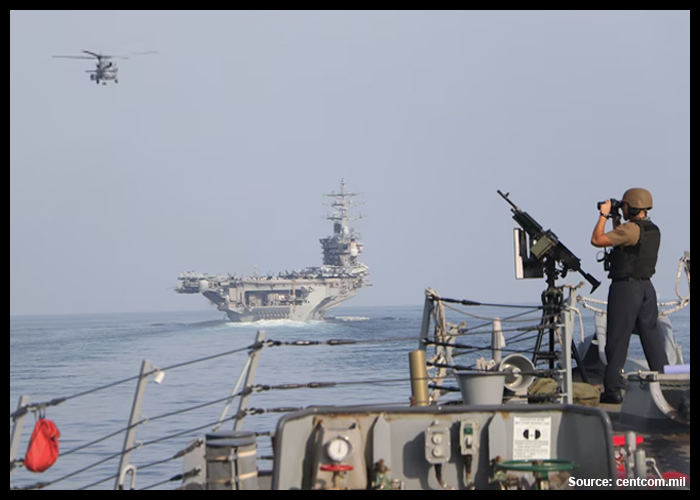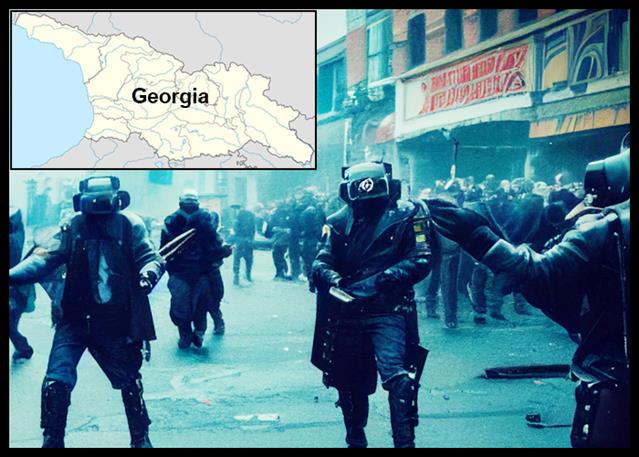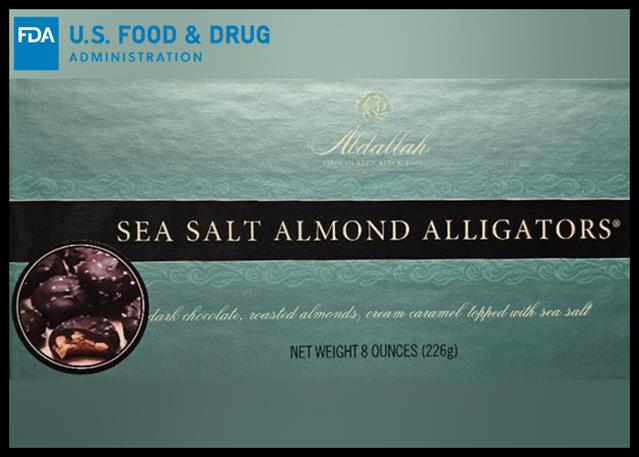
A group of 13 nations have given a strong warning to the Houthis against their ongoing attacks on commercial vessels transiting the Red Sea.
In a joint statement, the Governments of the United States, Australia, Bahrain, Belgium, Canada, Denmark, Germany, Italy, Japan, The Netherlands, New Zealand, Singapore, and the United Kingdom called for an immediate end to the attacks and release of vessels and crews held by the rebels in Yemen.
The group of mainly Western countries warned that the Houthis will face the consequences if they continue to threaten lives, the global economy, and free flow of commerce in the region’s critical waterways.
The warning comes in the wake of a significant escalation over the past week targeting commercial ships in the Red Sea with missiles, small boats, drones, helicopters, and attempted hijackings.
Iranian-backed Houthi rebels, who support Hamas in the war against Israel, have been attacking the ships since November, claiming they were linked to Israel.
For the first time, they also used anti-ship ballistic missiles against the vessels.
The nations said the Houthi attacks in the Red Sea are a direct threat to the freedom of navigation that serves as the bedrock of global trade in one of the world’s most critical waterways.
The statement notes that these attacks threaten innocent lives from all over the world and constitute a significant international problem that demands collective action.
The Red Sea is a critical waterway that has been essential to freedom of navigation and a major commercial corridor that facilitates international trade.
Nearly 15 per cent of global seaborne trade passes through the Red Sea, including 8 per cent of global grain trade, 12 per cent of seaborne-traded oil and 8 per cent of the world’s liquefied natural gas trade. International shipping companies continue to reroute their vessels around the Cape of Good Hope, adding significant cost and weeks of delay to the delivery of goods.
According to the International Chamber of Shipping, around 20 per cent of the world’s container ships are avoiding the Red Sea and re-routing around southern Africa, raising fear of rise in fuel prices.
The White House said the United States remains focused on working with a range of partners to protect the free flow of international commerce in the Red Sea.
At a news conference Wednesday, NSC Coordinator for Strategic Communications John Kirby explained details of the massive force presence that the Pentagon established in the Middle East.
This includes an aircraft carrier strike group, centred around the USS Dwight D. Eisenhower, with its air wing of some 80 aircraft, as well as an amphibious ready group.
Led by the assault ship USS Bataan, it was moved into the Eastern Mediterranean in recent days.
“An amphibious ready group with an embarked Marine expeditionary unit is capable of a wide range of operations and, because it is sea-based, remains a highly flexible option to any Commander-in-Chief when it comes to the potential use of force,” Kirby told reporters.
These are augmented by three additional squadrons of land-based fighter and attack aircraft and additional highly capable warships at sea, including a number of destroyers that are designed for ballistic missile defense.
“Some of those warships are operating in the Red Sea, where they — alongside the ships, aircraft, and capabilities of more than 20 other nations — continue to counter Houthi attacks on civilian maritime shipping,” Kirby said.
President Joe Biden has already made it clear that although the United States does not want to see the war between Israel and Hamas widen in the region, it will not “shrink from the task of” defending its interests and partners, or the free flow of international commerce.
Copyright © 2024, RTTNews.com, Inc. All Rights Reserved.
















